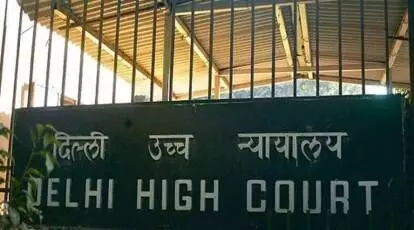
Delhi Waqf Board contests Centre's order to "absolve" it with regards to 123 assets
text_fieldsNew Delhi: The Minister of Housing and Urban Affairs' Land and Development Office issued a letter that "absolves" the Delhi Waqf Board from all matters relating to 123 properties in the capital, which the Board challenged in a new petition to the Delhi High Court.
Senior lawyer Rahul Mehra asserted on behalf of the Waqf Board before Justice Manoj Kumar Ohri's single-judge bench, stating that the board has consistently owned the properties for the past 100 years. “I have filed a substantive writ. I’m just saying kindly do not disturb that”.
The board had previously filed an application in a prior petition contesting the Centre's decision, and the HC had asked that the board file a substantive plea on February 22, the Indian Express reported
The board was the primary stakeholder party to whom the opportunity was given by the committee, according to the letter from the L&DO dated February 8. Despite this, the board did not appear or submit any representation with regard to the 123 properties. According to the letter, the board received yet another chance after moving a request on December 2, 2021. Again, though, it didn't raise any concerns or offer any submissions to the committee.
“It is evident from the above facts that Delhi Waqf Board does not have any stake in the listed properties, neither have they shown any interest in the properties nor filed any objections/ claims. It is therefore, decided to absolve Delhi Waqf Board from all matters pertaining to 123 Waqf Properties. Physical inspection of all 123 properties be carried out,” the letter reads.
According to Mehra, the President of India at the time had given his approval to the Centre's directive to transfer 123 Waqf properties to the Delhi Waqf Board in 1984.
“These 123 waqf properties are Mosque, Muslim Graveyards and Dargahs, which are waqf by virtue of their very nature and usage. It is a matter of fact that the actual physical possession of these 123 Waqf Properties was never taken over by the Acquiring Agency/British Government and the original religious use of these 123 properties is not discontinued even for once,” the plea states.
The Waqf Act of 1995, according to Mehra, gives the waqf board general superintendence, management, and control. He also disputed the Centre's assertion that the Waqf Board has not expressed an interest in the assets. Justice Ohri responded to Mehra's request for a status quo on the subject properties by saying that at this point, no such ruling could be made without hearing from the opposing party. A physical inspection of the buildings is currently required, according to the Centre, if they decide to do so. “I have to hear them also. Nothing is going to happen,” the court said.
According to the argument, Delhi Waqf Board has been selecting the managing committee responsible for overseeing those properties on a daily basis. The Waqf Act, according to the board, governs all Waqf assets and has an overriding effect.
A one-person committee was established by the government in 2016 to look into the matter, and it turned in its findings in 2017. For the same purpose, the government established a two-member Committee in August 2018, and in November 2021, the Delhi Development Authority published a notice asking public representations regarding the properties























